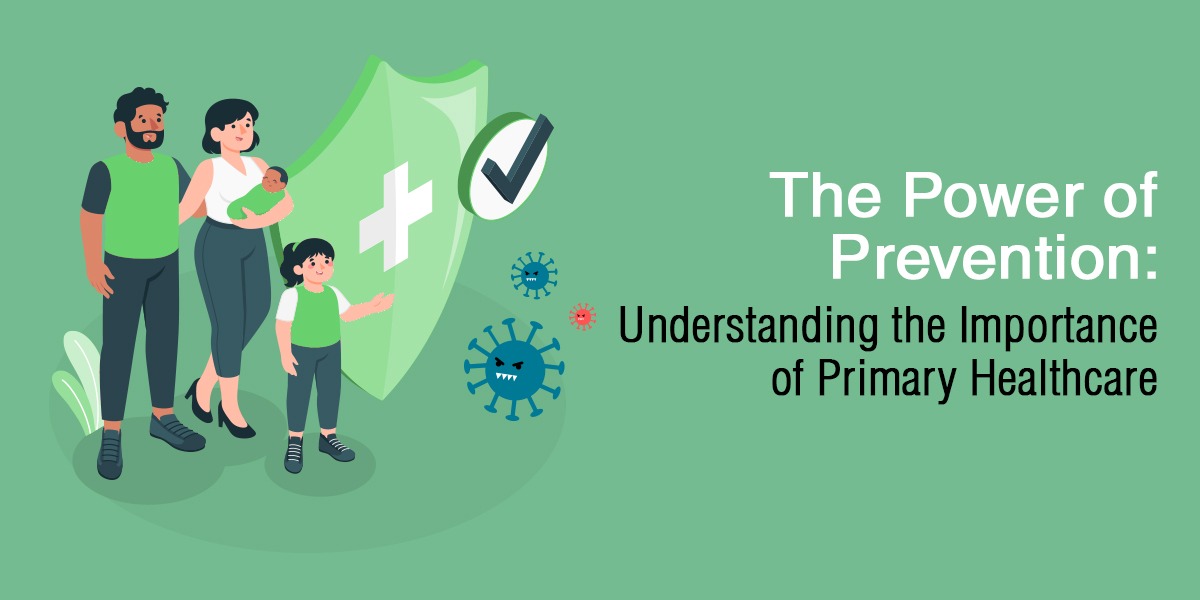Introduction:
In today’s fast-paced world, healthcare often revolves around treating illnesses and managing symptoms. However, there is a paradigm shift towards a more proactive approach: primary healthcare. This branch of healthcare emphasizes prevention, early detection, and comprehensive care. In this blog post, we will explore the significance of primary healthcare and how it can empower individuals to lead healthier lives.
What is Primary Healthcare?
Primary healthcare refers to the first point of contact between individuals and the healthcare system. It encompasses a range of services, including regular check-ups, vaccinations, health education, and disease prevention strategies. The primary healthcare provider, often a general practitioner or family physician, plays a crucial role in promoting wellness and preventing the onset of chronic diseases.
Prevention is Key:
Primary healthcare focuses on preventive measures rather than solely treating illnesses. By investing in preventive care, individuals can avoid or reduce the risks associated with various health conditions. Preventive screenings, such as blood pressure checks, cholesterol tests, and cancer screenings, enable early detection and timely intervention. Through routine vaccinations, primary healthcare protects individuals from infectious diseases and contributes to public health.
Comprehensive and Holistic Care:
Primary healthcare takes a holistic approach to healthcare, considering the physical, mental, and emotional well-being of individuals. It aims to address all aspects of health, including preventive, curative, rehabilitative, and palliative care. By understanding patients’ medical history, lifestyle, and social circumstances, primary healthcare providers can offer personalized care and develop long-term relationships with their patients.
Health Promotion and Education:
Primary healthcare is not limited to treating existing conditions. It actively promotes health and wellness through education and awareness programs. By empowering individuals with knowledge about healthy lifestyle choices, nutrition, exercise, and stress management, primary healthcare providers enable patients to make informed decisions and take control of their own health. This preventive approach has far-reaching effects on reducing the burden of chronic diseases.
Enhanced Accessibility:
Primary healthcare acts as a vital entry point to the healthcare system, ensuring accessibility to healthcare services for all individuals. It is often available in community clinics, local health centers, and family practice settings. By offering comprehensive care close to where people live and work, primary healthcare reduces barriers to healthcare access, particularly for marginalized and underserved populations.
Cost-Effectiveness:
Investing in primary healthcare yields long-term cost benefits for individuals and healthcare systems alike. By focusing on prevention, early detection, and management of health conditions at the primary level, the need for expensive hospitalizations and specialized treatments can be significantly reduced. This approach not only saves healthcare costs but also improves the overall health outcomes and quality of life for individuals.
Collaboration and Coordination:
Primary healthcare serves as a coordinator of healthcare services, ensuring continuity and integration of care. Primary healthcare providers work closely with specialists, hospitals, and other healthcare professionals to provide a seamless healthcare experience for patients. This collaborative approach ensures that patients receive appropriate referrals, follow-up care, and timely interventions, leading to better health outcomes.
Conclusion:
Primary healthcare plays a pivotal role in shifting the focus of healthcare from disease treatment to prevention and comprehensive care. By emphasizing prevention, promoting health education, enhancing accessibility, and coordinating healthcare services, primary healthcare empowers individuals to lead healthier lives. It is a cornerstone of a sustainable and patient-centered healthcare system. Embracing primary healthcare is a powerful step towards building healthier communities and reducing the burden of preventable diseases.





